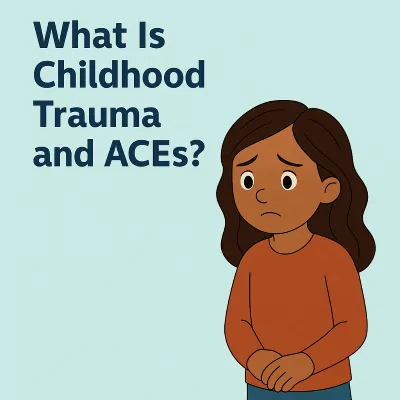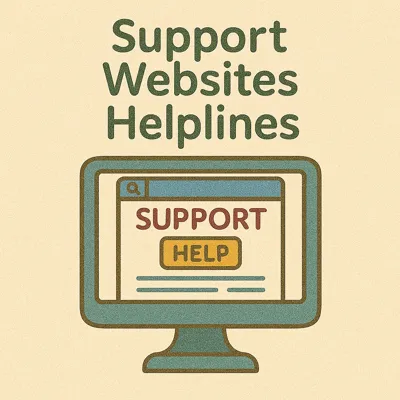Introduction
Have you ever wondered what people really need to be happy and healthy?
A long time ago, a clever psychologist called Abraham Maslow tried to answer that question. He came up with an idea called “Maslow’s Hierarchy of Needs.” It’s a bit like a ladder or a pyramid that shows the things people need to grow and feel good about themselves.
Maslow said that before we can think about big dreams, such as becoming confident, learning new things, or helping others, we first need to have our basic needs met, including food, safety, love, and belonging. When these needs are met, we can move up the ladder towards feeling our best and being the best version of ourselves.
What Are Needs?
Needs are the things we must have to live and feel well. They aren’t just “wants” like new toys or the latest trainers. Needs are things like food, sleep, feeling safe, and being loved.
When our needs are met, we can focus, learn, and enjoy life. But when our needs aren’t met, it can be harder to concentrate, manage feelings, or get along with others.
Why Is It Important to Understand Our Needs?
When we understand our needs, we can take better care of ourselves and others.It helps us notice what’s missing and ask for help when we need it.
For example, if someone is tired or hungry, they might find it harder to pay attention in school. Or if someone feels lonely, they might act out because they just want to feel included.
Learning about needs helps us to be more understanding and kind — both to ourselves and to the people around us.
Who Was Abraham Maslow?
A Brief Introduction to Maslow
Abraham Maslow was a psychologist — that means someone who studies how people think, feel, and behave.
He was born in 1908 in America and wanted to understand what helps people live happy and meaningful lives.
Instead of focusing solely on what makes people unwell, Maslow concentrated on what enables people to thrive. He believed that everyone has the potential to grow, learn, and become the best version of themselves.
His ideas have become famous around the world and are still used today in schools, workplaces, and healthcare settings to help people understand how to meet their needs and feel their best.
Why Did Maslow Study Human Needs?
Maslow wanted to find out what really motivates people — what pushes us to get out of bed, try new things, and keep going even when life feels hard.
He noticed that, no matter who we are or where we come from, we all share some of the same basic needs — like food, safety, love, and confidence.
Maslow discovered that once our basic needs are met, we naturally want to move on to bigger goals, like learning new skills, making friends, and eventually feeling proud of who we are.
This idea became known as Maslow’s Hierarchy of Needs — a step-by-step way of showing how people grow and develop through life.
Explaining Maslow’s Hierarchy of Needs
Have you ever felt really hungry and found it hard to think about anything else? Or noticed that when you feel safe and loved, it’s easier to learn and enjoy life?
That’s what Maslow’s Hierarchy of Needs is all about. It’s a way of showing what people need to feel happy, healthy, and ready to grow.
Maslow drew his idea as a pyramid, with our most basic needs at the bottom and our most significant goals at the top. We usually need to meet the lower needs first before we can focus on the higher ones.
The Five Levels of Needs
Physiological Needs — The Basics We Can’t Live Without
These are the things our bodies need to stay alive: food, water, air, sleep, warmth, and shelter.
If you’re really hungry or tired, it’s hard to think about anything else — even fun things! Once these needs are met, your body feels ready to focus and take on the day.
Example: When you’ve had a good night’s sleep and breakfast, you can focus much better in class.
Safety Needs — Feeling Safe and Protected
After your body’s needs are met, the next step is feeling safe. This means knowing you’re protected from harm and that you can trust the people and places around you.
For children, safety might mean having caring adults, a stable home, or teachers who make school feel calm and predictable.
Example: If you know your teacher will help you when things go wrong, you’ll feel more confident to try new things.
Love and Belonging — Friends, Family, and Feeling Included
Everyone needs to feel loved and accepted. This includes family, friends, and being part of a group or community. When you feel like you belong, it’s easier to be yourself and connect with others.
Example: Having a best friend, joining a club, or feeling welcome in your class helps you feel like you belong.
Esteem Needs — Feeling Proud of Ourselves
This level is all about feeling good about who we are and believing we can achieve things.
When people notice your efforts, say “well done,” or trust you with responsibility, it builds your confidence and helps you believe in yourself.
Example: Getting praise for your artwork, scoring a goal, or helping someone in need can make you feel proud and capable.
Self-Actualisation — Being the Best You Can Be
At the top of the pyramid is self-actualisation — becoming the best version of you.
This means following your dreams, discovering what makes you unique, and pursuing activities that bring you joy and purpose.
Example: You might find that you love singing, designing games, helping animals, or writing stories. Doing what makes you feel alive is part of reaching your full potential.
Why Is It Shaped Like a Pyramid?
Maslow used a pyramid to show how each level builds on the one below it.
If your basic needs (like food or safety) aren’t met, it’s harder to focus on things like friendships or creativity.
For example: If you’re hungry, you might not want to play or learn. But once you’ve eaten, you feel ready to connect and try your best.
Putting It All Together
Think about a normal school day:
- You eat breakfast and sleep well 🥣 (basic needs).
- You feel safe at school 🏫 (safety).
- You laugh with your friends ❤️ (belonging).
- You’re proud of your class project 🏆 (esteem).
- You start dreaming about what you’d love to do when you grow up 🌟 (self-actualisation).
Each layer helps you build the next — just like climbing a staircase or building blocks toward being your best self.
Maslow’s Hierarchy in Everyday Life
How Our Needs Affect Learning at School
Have you ever tried to do schoolwork when you were really tired or hungry? It’s almost impossible to concentrate, right?
Maslow’s idea helps us understand why that happens.
When our basic needs (like food, rest, and feeling safe) aren’t met, our brains focus on fixing those first. That means there’s less energy left for learning or paying attention.
If a child doesn’t feel safe at school, maybe because of bullying or too much stress, it can make learning even harder. However, when children feel safe, cared for, and included, they can focus better, participate more, and enjoy discovering new things.
When our needs are met, we’re ready to grow, learn, and take pride in what we can do.
How Teachers and Adults Help Us Meet Our Needs
Adults play a really important part in helping children feel supported and ready to learn.
- Meeting basic needs: Some schools have breakfast clubs or quiet areas where pupils can rest.
- Feeling safe: Teachers make sure classrooms are calm, kind, and free from bullying.
- Feeling included: Joining group activities, clubs, or projects helps everyone feel a sense of belonging.
- Building confidence: When adults notice your effort, say “well done,” or help you improve, it boosts your self-esteem.
- Becoming your best self: Adults can help you explore what you’re good at — like art, football, writing, or helping others — so you can reach your full potential.
When teachers, parents, and carers work together, they help meet the different layers of needs Maslow talked about.
Why Sometimes Needs Are Hard to Meet (and What Can Help)
Sometimes, life makes it hard to meet our needs.
A family might struggle to afford healthy food, or someone might feel unsafe at home or lonely at school. Major world events, such as a pandemic, can also make it harder to feel connected or at ease.
It’s important to remember that no one can meet all their needs alone. That’s why we have support networks: family, friends, teachers, youth workers, counsellors, and community groups — who can help us when things feel difficult.
If something is worrying you or making it hard to meet your needs, the best thing to do is talk to a trusted adult. Sharing your feelings helps others understand what support you might need.
Everyone needs help sometimes, and asking for it is a sign of strength, not weakness.
Cultural Differences and Maslow’s Theory
Are Needs the Same for Everyone?
Maslow believed that all people share the same basic needs — like food, safety, love, and confidence. But the way people meet those needs can look very different depending on where they live and the culture they grew up in.
For example:
- Everyone needs food to survive, but what counts as a “meal” might be different around the world — rice in one place, bread or maize in another.
- Everyone wants to feel safe, but safety might mean different things. In some places, it could be having a strong police force; in others, it’s living close to family or a close-knit community that looks out for one another.
So while our needs are the same, how we experience them depends on our culture, traditions, and values.
Belonging in Different Cultures and Communities
The feeling of belonging, being part of something bigger, is one of Maslow’s most important needs. But belonging doesn’t look the same for everyone.
In some countries, people tend to focus more on individual friendships, often belonging to small groups such as school clubs or sports teams. In other parts of the world, people find belonging through their whole community or family. For example, children might grow up surrounded by grandparents, cousins, and neighbours who all share food, celebrations, and support.
Both ways are special. What matters most is feeling connected, accepted, and cared for by the people around you.
What This Teaches Us
Maslow’s theory helps us see that even though we live in different places and have different customs, we all share the same human needs.
Whether someone lives in London, Nairobi, or Karachi — everyone wants to feel safe, loved, and proud of who they are.
Understanding these differences helps us be kind, curious, and respectful of other people’s cultures and experiences.
Challenges and Criticisms of Maslow’s Hierarchy
Maslow’s pyramid has been used all over the world to explain what people need to live happy, healthy lives. But not everyone agrees with everything he said!
Some people think the pyramid doesn’t always work in the same way for everyone. Real life isn’t always as neat and tidy as a staircase — people’s needs can change quickly, depending on what’s happening in their lives.
These ideas don’t mean Maslow was wrong — they just help us understand that human needs are complex and personal, not exactly the same for everyone.
Can We Move Up and Down the Pyramid?
Maslow thought that people usually meet their needs one step at a time — starting with basic needs like food and safety, and then moving up towards confidence and self-fulfilment. But in real life, we don’t always move in one direction!
For example:
- A pupil who feels safe and confident at school might suddenly move down the pyramid if their family moves to a new town, making them feel anxious or unsure.
- Someone might be working on self-esteem by joining a football team, but if they get sick, their body’s basic needs for rest and care will come first again.
So, people can move up and down the pyramid depending on what’s going on — and that’s completely normal. Our needs can shift as life changes.
What If Our Needs Change?
Our needs grow and change as we grow and change. When we’re little, we mostly need adults to keep us safe. As we get older, we start to need more independence, friendships, and chances to achieve things on our own.
Sometimes, big life events, like a new school, illness, or changes in the family, can make old needs come back for a while. That’s why it’s okay to need extra comfort or help, even if you’re usually confident and independent.
Understanding that needs change helps us to be kind to ourselves and others. Everyone’s journey through the pyramid looks a bit different — and that’s what makes being human so interesting.
How Understanding Our Needs Can Help Us Grow
Learning about Maslow’s Hierarchy of Needs helps us understand what makes people happy, healthy, and motivated. When we understand our basic needs, such as food, safety, friendship, and confidence, it becomes easier to recognise what’s missing and to ask for help when we need it.
It also helps us understand other people better. Sometimes, when someone is upset, angry, or quiet, it might be because one of their needs isn’t being met.
Knowing this helps us respond with kindness instead of judgment.
Setting Goals and Reaching Our Full Potential
Maslow’s pyramid can act like a roadmap for life.
It reminds us that before we can reach big goals, like learning a new skill or chasing a dream, we first need to make sure our basic needs are met.
For example:
- If you’re tired or hungry, it’s hard to concentrate on homework.
- If you don’t feel safe or included, it’s hard to feel confident enough to try new things.
Once those needs are taken care of, you can move up the pyramid — setting goals, building your confidence, and discovering what makes you special.
That’s what Maslow called self-actualisation — becoming the best version of you!
Being Kind to Ourselves and Others
Everyone is working through their own needs — even adults! Sometimes we feel great and confident; other times we feel lonely, tired, or unsure. That’s okay — it’s part of being human.
When we understand that everyone has needs, it’s easier to:
- Be patient with ourselves when we’re struggling.
- Be kind to others when they’re having a hard time.
- Offer support instead of getting annoyed or angry.
Maybe your friend seems quiet — perhaps they feel left out or unsafe. Instead of judging, you could ask, “Are you okay?” or invite them to join in. Understanding needs helps us build friendlier, kinder communities where everyone feels seen, valued, and respected.
Conclusion
Abraham Maslow’s Hierarchy of Needs helps us understand what people need to grow, learn, and feel happy.
It reminds us that everyone has the same basic needs, such as food, safety, love, and confidence, and that these needs build upon each other like steps on a ladder.
When our lower needs are met, we can focus on larger goals, such as learning new things, helping others, and becoming the best version of ourselves.
Key Takeaways for Children and Young People
- Feeling safe, loved, and supported helps us learn and grow.
- Everyone has needs — and when we understand that, we can be kinder and more patient with others.
- Looking after our physical health (sleep, food, exercise) helps our minds feel ready to learn and explore.
- Building friendships, gaining confidence, and discovering our talents all help us move up the pyramid toward reaching our potential.
How Can We Use Maslow’s Ideas in Our Lives?
Maslow’s ideas can help us reflect on our own lives and ask:
- “What do I need right now to feel okay?”
- “Who helps me feel safe and supported?”
- “What makes me feel proud or excited to learn?”
By noticing our needs, and helping others with theirs, we can build happier, kinder schools and communities.
It’s not about climbing the pyramid perfectly; it’s about growing, learning, and caring along the way.
When we understand our needs, we don’t just grow smarter — we grow stronger, kinder, and more connected.


